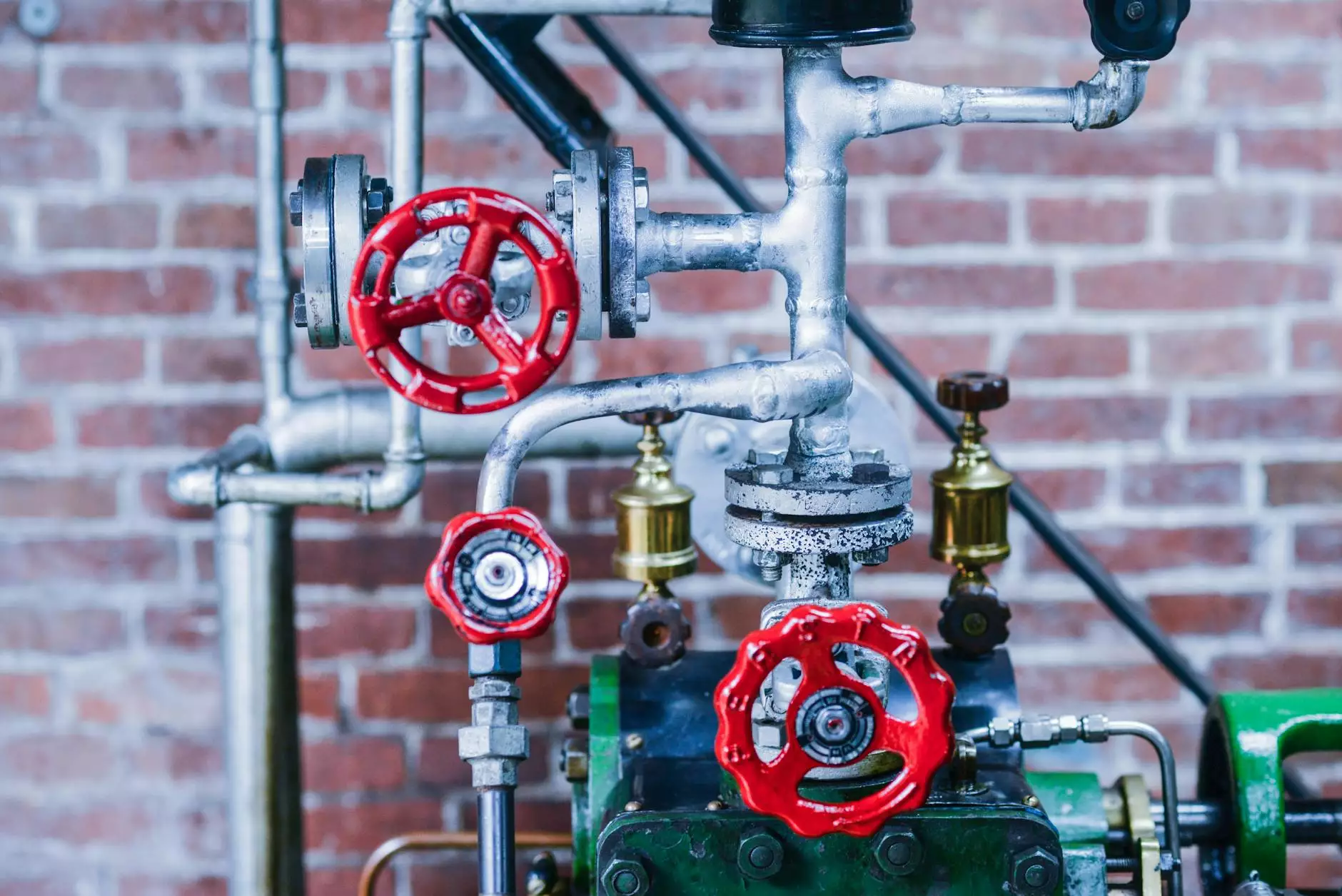Unlocking Business Potential with Stationary Crushing Plant: A Comprehensive Guide

In the rapidly evolving world of construction, mining, and material processing, the importance of efficient, reliable, and high-capacity crushing solutions cannot be overstated. Among the various equipment options available, the stationary crushing plant stands out as a cornerstone technology for enterprises aiming to achieve optimal productivity and business growth. This detailed article explores the myriad advantages, functionalities, and strategic applications of stationary crushing plants, providing invaluable insights for industry professionals and entrepreneurs seeking to elevate their operations.
What Is a Stationary Crushing Plant? An In-Depth Overview
A stationary crushing plant is a large-scale industrial setup designed for crushing raw materials such as rocks, stones, and minerals at a fixed location. Unlike mobile or portable crushing units, stationary plants are permanently installed, offering unparalleled stability, higher throughput, and operational efficiency. Typically, they comprise a series of crushers, screens, feeders, and conveyors, meticulously configured to handle various sizes and types of raw material.
These plants are widely used in mining, construction aggregates production, infrastructure projects, and recycling operations. Their robust architecture, coupled with advanced automation and control systems, enables continuous, high-volume processing with minimal downtime and maintenance requirements.
Core Components and Technologies of a Stationary Crushing Plant
- Primary Crusher: The first line of processing, responsible for reducing large blocks into manageable sizes. Common types include jaw crushers and gyratory crushers.
- Secondary and Tertiary Crushers: Further refine the material, often using cone crushers or impact crushers to meet specific size or shape requirements.
- Vibrating Screens: Classify the crushed material based on size, ensuring only appropriately processed materials proceed to the next stage.
- Conveyors: Facilitate efficient movement of material between different stages of crushing and screening.
- Control Systems: Automated PLC and SCADA systems that monitor and optimize plant performance, ensuring consistent output and energy efficiency.
The Strategic Advantages of Choosing a Stationary Crushing Plant
1. Superior Durability and Reliability
Stationary crushing plants are engineered with sturdy, heavy-duty materials, ensuring they withstand the rigors of continuous operation in demanding environments. Their fixed nature allows for more substantial foundation engineering, leading to a longer lifespan and less frequent maintenance compared to mobile units.
2. Higher Throughput and Productivity
With larger capacities and advanced automation, stationary plants can process thousands of tons per hour, significantly boosting business output. This high throughput capability is essential for meeting tight project deadlines and maximizing revenue streams.
3. Customizable and Modular Design
Manufacturers like Polygonmach offer modular stationary crushing solutions tailored to specific business needs. This flexibility allows industries to expand or modify their facilities with ease, accommodating future growth or changing material requirements.
4. Cost Efficiency Over the Long Term
While initial investment might be higher compared to mobile options, stationary plants deliver lower operational costs per ton due to reduced fuel consumption, lower maintenance, and energy efficiencies achieved through automation and optimized engineering.
5. Enhanced Environmental Compliance
The fixed infrastructure minimizes environmental disruption, ensuring compliance with local regulations regarding dust, noise, and emissions. Advanced dust suppression and noise abatement systems further promote eco-friendly operations.
Applications and Industries Benefiting from Stationary Crushing Plants
Construction and Infrastructure Development
From highway construction to dam projects, stationary crushing plants produce the high-quality aggregates necessary for durable infrastructure. Their ability to deliver consistent, uniform materials makes them integral to project success.
Mining and Mineral Processing
In mining operations, these plants facilitate the extraction and processing of mined ore, ensuring maximum resource recovery while minimizing waste. Their scalability supports large mineral deposits and complex ore characterization.
Recycling and Waste Management
Recycling facilities use stationary crushing solutions to process construction debris, concrete, asphalt, and other waste materials, transforming them into reusable aggregates and reducing landfill reliance.
Aggregates Production for Commercial Sales
Aggregate producers rely on stationary crushing plants to maintain a steady supply of high-quality materials, catering to a broad client base in the construction and landscaping sectors.
Technological Innovations in Stationary Crushing Plants
- Automation and Remote Monitoring: Modern plants utilize sophisticated PLC and SCADA systems for real-time control and diagnostics, reducing labor costs and enhancing safety.
- Energy-Efficient Solutions: Incorporating variable frequency drives (VFDs) and energy-saving motors, these plants optimize power consumption, reducing operational expenses.
- Dust and Noise Control Technologies: Environmentally conscious designs include dust suppression systems and sound barriers, aligning operations with strict environmental standards.
- Advanced Crushing Technologies: Innovations such as high-pressure grinding rollers and vertical shaft impactors increase efficiency, reduce wear, and improve material shape and size distribution.
Choosing the Right Stationary Crushing Plant for Your Business
Selecting an optimal setup involves assessing various factors:
- Material Characteristics: Hardness, abrasiveness, moisture content, and feed size define suitable crusher types and configurations.
- Production Capacity Needs: Understanding throughput requirements ensures selecting a plant that balances size and efficiency.
- Space and Site Constraints: Available land footprint influences the layout and scalability of the plant.
- Budget and Return on Investment: Calculating initial costs against projected revenue helps streamline procurement decisions.
- Environmental Regulations: Compliance mandates impact system choices, particularly concerning dust and noise control.
The Role of Polygonmach in Providing Top-Tier Stationary Crushing Plants
As industry leaders, Polygonmach specializes in designing, manufacturing, and integrating high-performance stationary crushing solutions tailored to diverse industry demands. Their offerings include innovative, durable, and energy-efficient plants equipped with the latest technological features, ensuring clients achieve maximum operational efficiency and business growth.
Polygonmach’s expertise extends beyond mere equipment supply; they provide comprehensive consulting, installation, and ongoing support—all aimed at optimizing clients' process flows and achieving long-term success.
Future Trends in Stationary Crushing Plant Technology and Business Impact
- Integration of IoT and Smart Technologies: Enhancing predictive maintenance, fault detection, and process optimization to minimize downtime and extend equipment lifespan.
- Sustainable and Green Operations: Emphasizing renewable energy sources, recyclable materials, and environmentally friendly designs to meet global sustainability goals.
- Increased Customization and Modularity: Allowing for more adaptable and scalable plants aligned with evolving industry needs.
- Automation-Driven Business Models: Automating routine processes enables businesses to operate with less human intervention, improving safety and efficiency.
Conclusion: The Strategic Value of Stationary Crushing Plants
Investing in a stationary crushing plant offers a multitude of benefits that drive business growth, operational efficiency, and environmental responsibility. Its robust construction, customizable design, and technological advancements position it as an indispensable asset for industries seeking reliable, high-volume material processing solutions.
With companies like Polygonmach leading the way in innovation and quality, businesses can confidently integrate stationary crushing plants into their operations, ensuring they stay competitive in a dynamic market landscape. As industry demands evolve, these plants will continue to serve as the backbone of sustainable, profitable, and efficient material processing.
Adopting a stationary crushing plant today paves the way for a resilient, scalable, and environmentally conscious future for your business.









